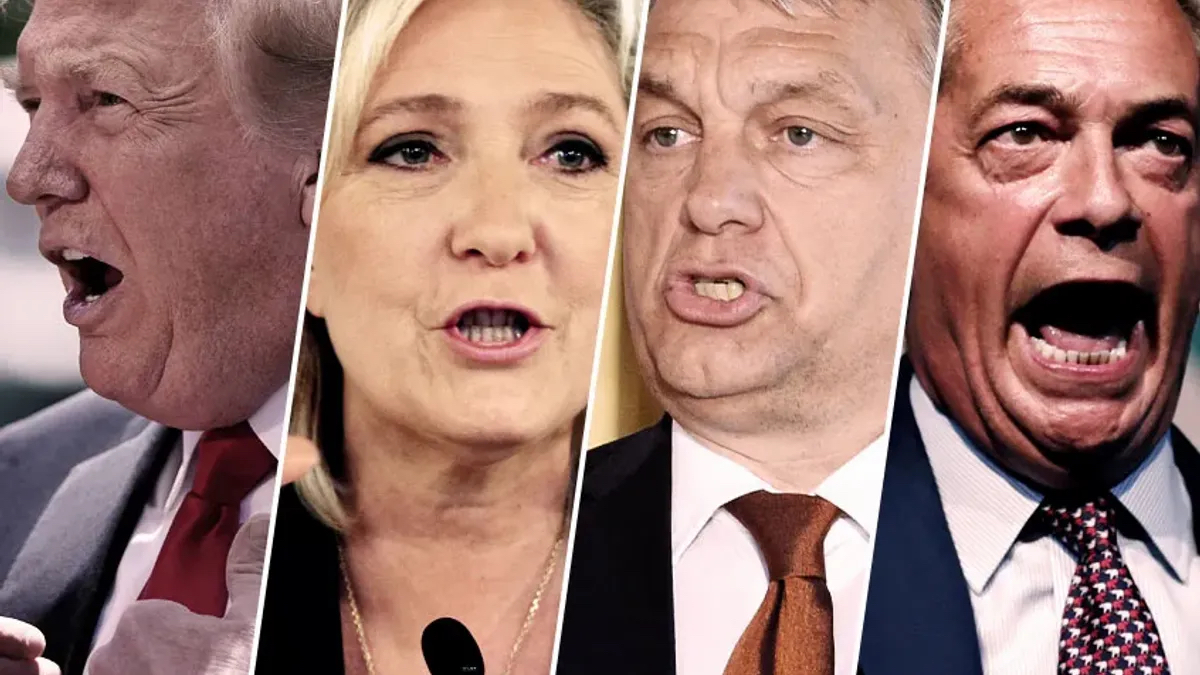
The support for centre left and centre right parties, the traditional key players of European national politics, is dwindling in many European countries. In Germany and Austria, the combined support for the social and Christian democratic parties fell from 74,9 and 77,3 in 1990, respectively, to under 60% in the most recent elections. Since 2017 in Germany, however, the support for the SPD and the CDU/CSU is at an historic low: on the September 2021 federal elections, the combined vote share of the two traditionally dominant parties of the Federal Republic only amounted to 49,8%. Whereas the combined vote share of their two challengers, die Grüne (14,8%) and the liberal FDP (11,5%) reached 26,3%. Generally, among voters under 30, the German green and liberal parties had more supporters than either the social democrats or the Christian democrats (and the Greens were on near parity with the SPD and the CDU even in the age group 30 to 44).
We see similar trends in other countries, too. In the Netherlands the combined vote share of the three biggest parties – the socialist, the Christian democrats, and the conservative liberals – fell from more than 80% to under 50% in the past 30 years. In Sweden the once dominant social democrats had their worst election results in history, falling under 30% in September 2018. Their main opponents, the conservative Moderaterna managed to lose almost 4% of their support while in opposition (falling just under 20%). In Italy, Matteo Salvini and the Five Star Movement upended Italian politics. In Spain, the dominance of the socialist PSOE and the conservative PP ended, and a fragmented national party system took its place. In France, both the centre-right and the centre-left collapsed and gave way to the competition between President Macron’s centrist movement and the far-right Front National. In the United Kingdom, the party system seems to be stable on the surface (thanks largely to the majoritarian electoral system), but Brexit tells a very different story than political stability. Meanwhile, far-right and left-wing populists are on the rise, and once fringe social liberal and green parties are making advances in the political centre.
How to make sense of these changes? Is it 40 years of neoliberal reforms that has finally caught up with the centrist parties? Have the centre right and centre left parties become all too similar? Is it cultural change? Have voter attitudes changed so profoundly? Toward what? Economic and social policies, “identity politics” or both? Is it immigration? Is it globalization? Is it the European Union? One could argue both for and against all these likely explanations, and there are convincing arguments on all sides of the debate. The aim of this seminar is to go beyond the discourse in the press and take the long view.
In the first three weeks we focus on one of the main theories on party competition, the cleavage theory, and its implications on how party system change can be conceptualised. Then we discuss on the basis on the scientific literature the main possible causes behind the political change: economic and social policy liberalisation, immigration, post-materialism, and the loss of responsiveness of party government and the decline in the representativeness of political parties. This section is followed by a wrap up of the theoretical framework both from the perspectives of the attitudes of voters (demand-side) and the party system (supply-side). The seminar is concluded with four sessions devoted to the main “party families” (defined by their positions along the new conflict lines) in a comparative perspective and analysed based on the theories discussed during the semester: the left and right-wing populists, the greens and the liberals, the centre left and the centre right. What challenges do they face? How does their success or failure affect the party system? How does the new dynamic impact the parties? What new strategies do they pursue? What policies do they advocate? Who are their supporters? What is their electoral appeal? How do they govern? etc.
